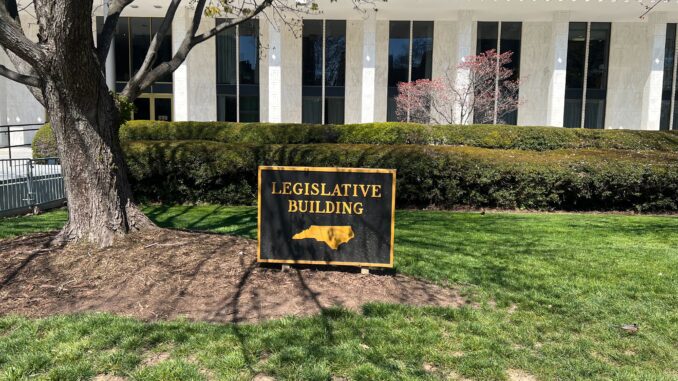
RALEIGH — On June 28, House Bill 605, titled School Threat Assessment Teams, received final approval votes and was sent to Democratic Gov. Roy Cooper.
The eight-page bill’s primary sponsors are House K-12 Education Committee Co-chairs: John Torbett (R-Gaston), Tricia Cotham (R-Mecklenburg) and Hugh Blackwell (R-Burke).
The measure would require threat assessment teams to be formed in public school units. Currently, there is no law requiring such teams. Additionally, the bill would require public schools to participate in school safety exercises and programs as well as requiring local school board to establish peer-to-peer support programs. Private schools are also encouraged to participate in school safety exercises and programs under the bill.
The bill passed its first reading in the House 106-7.
The Senate unanimously passed a preferred committee substitute to the bill by a vote of 46-0 on June 21 and on June 27, the House concurrence vote passed the measure by a vote of 115-4.
The only House members voting against the measure were all Democrats; Reps. John Autry (D-Mecklenburg), Amber Baker (D-Forsyth), Maria Cervania (D-Wake) and Julie von Haefen (D-Wake).
The bill received support from the N.C. Department of Public Instruction’s Center for Safer Schools.
Center for Safer Schools (CFSS) Executive Director Karen W. Fairley said in a statement that she and N.C. State Superintendent Catherine Truitt have advocated for threat assessment legislation since coming into office in 2021.
“It’s not punitive – it allows us to identify children who might be a danger to themselves or others and gives them the assistance and resources that they deserve,” Fairley said.
“Nothing is better than having fully-formed threat assessment teams in our schools,” Truitt said. “A fully-functioning threat assessment team is a critical component of keeping schools safer and preventing violence.”
Under the bill, the CFSS will develop guidance for threat assessment teams for public schools.
“Students trust their peers. Other than their parents, no one knows them better,” Fairley said of the peer-to-peer support program in the bill. “It’s crucial to a child’s mental health for them to be able to confide in and receive assistance from someone they can relate to.”
